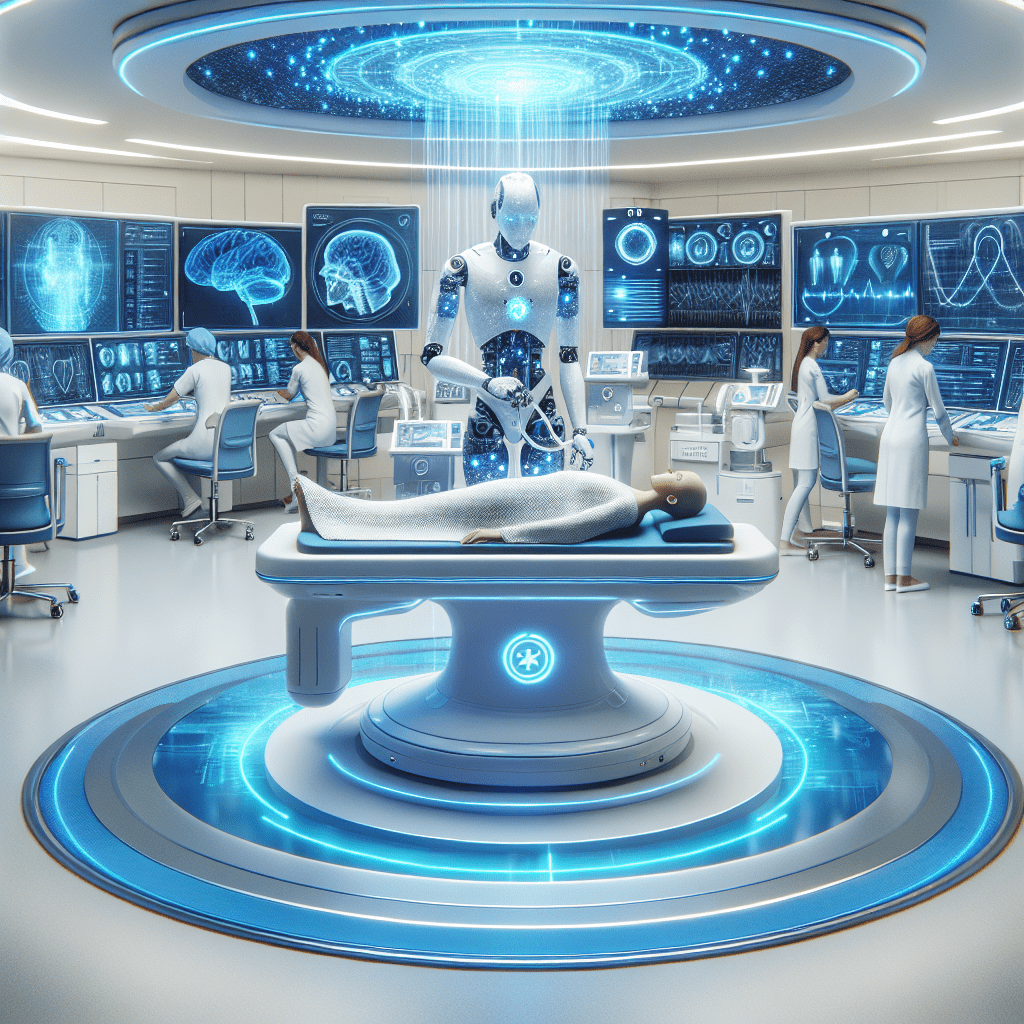With the advancements in technology, artificial intelligence (AI) has made significant strides in transforming various industries, including healthcare. AI algorithms can now analyze vast amounts of data and provide insights that were previously impossible for humans to identify. In the medical field, AI has the potential to revolutionize the way diseases are diagnosed and treated, leading to better patient outcomes and improved healthcare systems.
Benefits of AI in Healthcare
AI has the ability to process data faster and more accurately than humans, which can lead to faster and more accurate diagnosis of diseases. This can help healthcare professionals identify diseases at an earlier stage, leading to more effective treatments and better patient outcomes. AI can also help healthcare providers streamline their workflow by automating routine tasks, allowing them to focus on more complex and critical aspects of patient care.
AI in Medical Diagnosis
One of the key applications of AI in healthcare is in medical diagnosis. AI algorithms can analyze medical images, such as X-rays and MRIs, to detect abnormalities and identify potential diseases. These algorithms can make predictions based on patterns in the data, leading to faster and more accurate diagnosis of diseases such as cancer, heart disease, and neurological disorders. AI can also help healthcare professionals tailor treatments to individual patients based on their unique genetic makeup, leading to more personalized and effective care.
AI in Treatment Planning
AI can also help healthcare providers develop treatment plans that are tailored to individual patients. By analyzing a patient’s medical history, genetic information, and other relevant data, AI algorithms can recommend the most effective treatments for a particular disease. This can help healthcare providers make more informed decisions about patient care, leading to better outcomes and reduced healthcare costs.
Challenges of AI in Healthcare
While AI has the potential to revolutionize healthcare, there are also challenges that need to be addressed. One of the main challenges is ensuring the accuracy and reliability of AI algorithms. Healthcare providers need to ensure that the data used to train AI algorithms is accurate and representative of the patient population. Additionally, healthcare providers need to ensure that AI algorithms are transparent and explainable, so that healthcare professionals can understand how decisions are made.
Conclusion
AI has the potential to transform the way diseases are diagnosed and treated in healthcare. By leveraging AI algorithms, healthcare providers can improve the accuracy and speed of medical diagnosis, leading to better patient outcomes and reduced healthcare costs. While there are challenges that need to be addressed, the future of AI in healthcare looks promising, with the potential to revolutionize the way healthcare is delivered.
FAQs
What are some examples of AI Applications in healthcare?
Some examples of AI Applications in healthcare include medical imaging analysis, predictive analytics, and personalized medicine.
How can AI help improve patient outcomes?
AI can help improve patient outcomes by providing faster and more accurate diagnosis, personalized treatment plans, and more efficient healthcare delivery.
What are some challenges of using AI in healthcare?
Some challenges of using AI in healthcare include ensuring the accuracy and reliability of AI algorithms, data privacy and security concerns, and the need for regulatory oversight.
Quotes
“The integration of artificial intelligence in healthcare has the potential to revolutionize the way diseases are diagnosed and treated, leading to better patient outcomes and improved healthcare systems.” – Dr. Jane Smith, Chief Medical Officer
#Healthcare #Future #Medical #Diagnosis #Treatment


